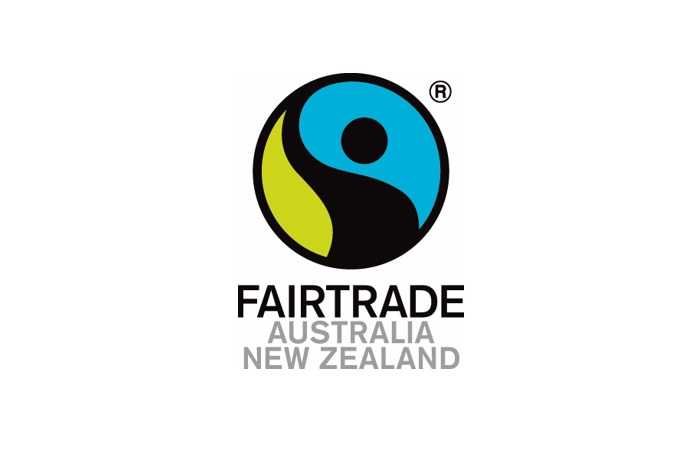MILAN – Fairtrade-certified coffee producers around the world could earn about $270 million more each year if all of the coffee that is certified Fairtrade, and supported by Fairtrade quality assurances, standards and training, was bought on Fairtrade terms.
According to the latest “Monitoring the Scope and Benefits of Fairtrade: Coffee” report, only 33.8 per cent of Fairtrade-certified coffee is bought on Fairtrade terms. This means hundreds of thousands of coffee farmers are missing out on a Premium payment of US$0.44 per kilogram of green coffee beans that goes into a communal fund for income support, farm improvements and community projects.
Fairtrade is the only independently certified system in the world that requires coffee buyers to pay a minimum price as well as a Premium paid directly to producers.
“I can only imagine what we could achieve in partnership with the coffee farmers in the Fairtrade system if 100 per cent of their crops was sold under Fairtrade terms. It is not fair to expect farmers to produce a high-quality product but not get paid a premium for it,” says Molly Harriss Olson, CEO, Fairtrade Australia New Zealand.
“When Australian and New Zealand coffee traders and roasters buy on Fairtrade terms they invest in the communities that produce the coffee they buy. They pay a premium that injects much-needed funds into some of the world’s most remote farming communities, paying for coffee quality improvement, healthcare, education and other community projects,” says Harriss Olson.
“The Fairtrade system is about making trade fair to achieve a bigger dream, a bigger goal,” says Gabriel Iso, Fairtrade team leader in Papua New Guinea. “It is a system that is all about communities, better living conditions, and giving back to the farmers,” he says.
Papua New Guinea coffee farmer Mitchell Ricky, who is a member of the Highlands Organic Agricultural Cooperative (HOAC) in the remote Eastern Highlands, says: “From the Fairtrade Premium we get water supply for our villages, we get roofing irons, [coffee] pulping machines and classrooms for our kids.”
The Fairtrade Premium benefit is significant for coffee farming cooperatives such as HOAC. If it sells, on average, 700 metric tonnes of coffee a year on Fairtrade terms, it earns Fairtrade Premium payments of US$308,000 (AUD$425,000) a year for its farmers, coffee production improvements and community infrastructure such as roads and school buildings.
Sydney roaster, Seven Miles Coffee, has injected more than $100,000 in Fairtrade Premium payments over the past three years into coffee farming communities in Papua New Guinea, Colombia, Honduras, Nicaragua and Timor Leste, “which is an important component of our approach to improving sustainability and fulfilling our social responsibilities as a business, says Adam Carr,” Seven Miles’ Science and Education Centre Manager.
Approximately 150 Australian and New Zealand coffee traders and roasters currently buy coffee on Fairtrade terms. Some of these Fairtrade Premium payments benefit coffee farming communities in Papua New Guinea and Timor Leste, which have some of the highest rates of people living in extreme poverty in the Pacific region.
Pacific producers need people buying coffee on Fairtrade terms more than ever as more than one million people in the Pacific could be pushed into extreme poverty as a result of the economic impact of the Covid-19 pandemic, according to the Asian Development Bank’s Pacific Economic Monitor analysis.
“It’s not okay that hundreds of farming communities growing Fairtrade crops are missing out on millions in Fairtrade Premiums because buyers are failing to purchase the coffee on Fairtrade terms,” says Karen Barnett, founder of Montville Coffee, one of Australia’s first Fairtrade-certified coffee roasters.
“When people benefit from the quality that Fairtrade-certified coffee delivers without paying a Fairtrade Premium for it, they are exploiting farmers and undermining a global system built on the principles of social justice, fairness and investing in the futures of farming communities in some of the world’s poorest countries,” says Barnett.
A total of 582 Fairtrade-certified coffee cooperatives representing some 762,392 farmers in 32 countries, including Papua New Guinea, Timor Leste and Indonesia, work with the global Fairtrade organisation and its independent certifier FLOCERT to produce coffee that meets internationally-agreed social, economic and environmental standards.
“In an industry that has seen the price of coffee on the commodities exchange stay below US$1 dollar for years, causing smallholder farmers to sell below the cost of production, it is more important than ever to deepen our support for the production and sale of coffee on Fairtrade terms,” says Harriss Olson.
For information on out how to get Fairtrade certified, go to the For Business section at: www.fairtradeanz.org
To see Fairtrade coffee production in action in Papua New Guinea: https://www.youtube.com/watch?v=jFjwVaAqU3c
For more information on global Fairtrade coffee: https://www.fairtrade.net/library/monitoring-the-scope-and-benefits-of-fairtrade-coffee-monitoring-report-10th-edition










